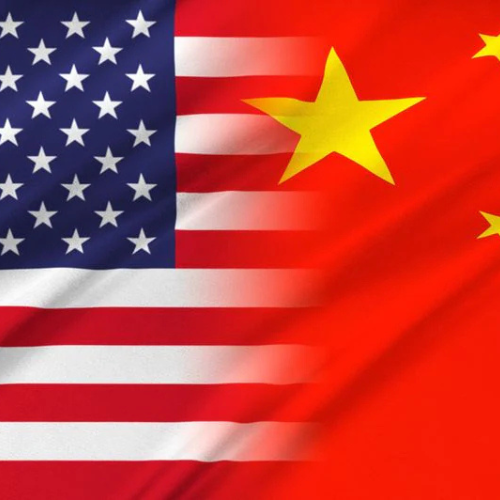In a significant move, the United States has imposed sanctions on several Chinese companies and an individual involved in producing parts for Russian drones. This action highlights the growing tensions between the U.S. and China, especially concerning the ongoing war in Ukraine. The U.S. government believes these companies have played a crucial role in helping Russia carry out its military operations against Ukraine.
Background of the Situation
Since Russia invaded Ukraine in 2022, countries around the world have reacted in various ways. The U.S. and its allies have supported Ukraine by sending military aid and imposing sanctions on Russia. China, on the other hand, has been strengthening its ties with Russia. However, Chinese officials consistently deny that they supply weapons to Russia.
The U.S. Department of the Treasury announced sanctions targeting three companies and one individual for their involvement in creating the “Garpiya series” of long-range drones. These drones have been used by Russia to launch attacks on Ukraine. The sanctions aim to prevent further development and use of these drones in the ongoing conflict.
The Treasury Department stated, “The Garpiya has been deployed by Russia in its brutal war against Ukraine, destroying critical infrastructure and causing mass casualties.” This statement emphasizes the severity of the situation and the consequences of using such drones in warfare.
Details of the Drone Sanctions
The newly imposed sanctions focus on companies based in China that are said to be directly helping Russia develop and produce drones. According to U.S. officials, experts from China designed the Garpiya drones, and factories in China collaborated with Russian defense firms to manufacture them. Once completed, these drones are sent to Russia for use in the conflict against Ukraine.
These drones are particularly dangerous because they can evade Ukraine’s air defenses, allowing them to strike critical targets with little warning. Recent attacks have caused significant destruction, including a missile strike in the city of Poltava that tragically killed 55 people and injured 328 others. Such incidents underscore the importance of addressing the source of these weapons.
Hezbollah Finance Network Targeted by U.S. Sanctions
The U.S. government has stated that it will continue to disrupt networks that enable Russia to acquire advanced weaponry. Bradley T. Smith, acting undersecretary of the Treasury for terrorism and financial intelligence, commented, “Russia increasingly relies on the expertise of foreign professionals and the import of sophisticated technologies to sustain its weapons program and advance its military campaign against Ukraine.” This statement reveals the depth of international collaboration involved in the production of these weapons.
The sanctions announced this week are significant because they mark the first time the U.S. has specifically targeted Chinese entities that develop and produce complete weapons systems in partnership with Russian firms. This highlights the increasing seriousness of the U.S. response to perceived threats from both Russia and China.
China’s Reaction and the Broader Implications
China has repeatedly stated that its trade with Russia is normal and that it does not supply weapons for use in the Ukraine conflict. However, the U.S. government continues to accuse China of providing material support to Russia. This latest round of sanctions is a direct attempt to hold China accountable for what the U.S. views as a dangerous collaboration that could prolong the war in Ukraine.
The situation is further complicated by recent tensions between the U.S. and China regarding military sales to Taiwan. Just last month, China imposed its own sanctions on U.S. defense companies over their sales of military equipment to Taiwan. This move was seen as a response to what China views as violations of its sovereignty. The Chinese Ministry of Foreign Affairs argued that U.S. weapon sales to Taiwan threaten China’s security and harm U.S.-China relations.
As these two powerful nations continue to navigate their complex relationship, the implications of the U.S. sanctions could resonate beyond just the drone manufacturing companies. The sanctions may affect how other countries approach their relationships with both the U.S. and China, especially in the context of military and technological cooperation.


